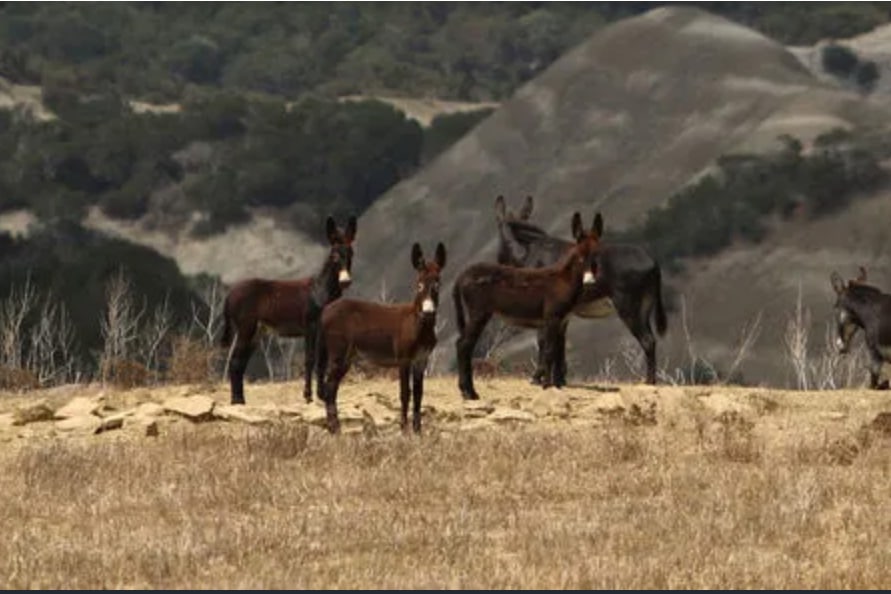Cypriot donkeys are being “used as proxies” by news media in Turkey to encourage the country’s public to come around to the idea of euthanising stray dogs, Karpasia environmental protection and social activity association chairman Firat Borak said on Tuesday.
Borak was referring to a report in Tuesday’s edition of Turkish newspaper Sozcu which bore the headline “let’s put the donkeys to sleep”.
The article led on the issue of the debate regarding the potential euthanasia of stray animals in Turkey, before saying a “similar” situation has developed in Cyprus which has “almost divided the country in two”.
It quoted Galinoporni mukhtar Halil Yesilbulut, who said every farmer in his village has seen “20,000 or 30,000 square metres of barley and wheat destroyed”.
“We are tired of chasing donkeys every day,” Ayios Symeon mukhtar Rezvan Inlen said.
“The number of wild donkeys has increased a lot. The authorities are treating us like donkeys.”
However, Borak was keen to point out that neither mukhtar called for donkeys to be euthanised.
“Some circles in Turkey want to push public opinion in a certain direction so they can euthanise stray dogs. Donkeys in the Karpas are being used as proxies to cover these people’s sins and crimes against humanity,” he told news website Kibris Postasi.
He said that while the population of donkeys has increased and that roaming donkeys have been known to damage property and eat crops, other measures are taken to control them.
“The aim here is to take measures to prevent the excessive proliferation of donkeys and to protect the donkeys,” he said.
He was also keen to stress that donkeys are “of great economic benefit” to the Karpasia region.
“Donkeys must be protected. The problem can be prevented if the donkeys are placed in a fenced area, taking into account expert opinions, and preventing overpopulation,” he said.
With this in mind, the north drew up a “Karpasia donkeys management plan cooperation protocol” in August last year with the aim of better managing the peninsula’s free roaming donkeys.
The protocol was signed by the north’s ‘tourism minister’ Fikri Ataoglu, Rizokarpaso and Yialousa mayor Hamit Bakirci, and Tashkent nature park representative Kemal Basat.
Basat told the Cyprus Mail at the time the protocol is a “win-win-win” and that it provided for a ten-year implementation of plans to control and safeguard the region’s donkeys.
He said the first year will see the scientific committee created and various workshops held to gather ideas from professionals and residents.
At the end of the first year – this coming August – a “donkey management plan” will be devised and completed. It will then be implemented for the following three years, before the situation will be “managed” for six further years.






Click here to change your cookie preferences